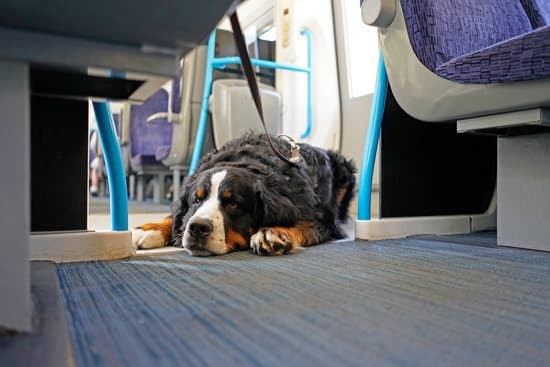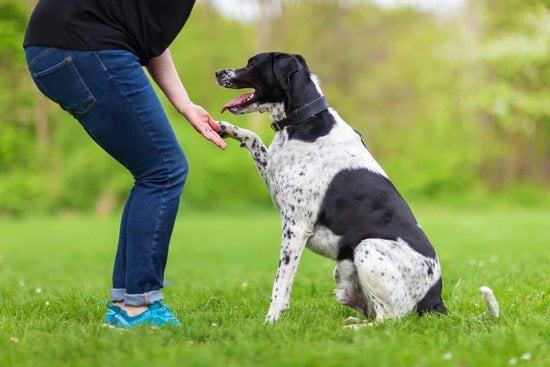Service dogs play an essential role in the lives of individuals with disabilities, providing invaluable support and enhancing independence. Whether assisting those with visual impairments, hearing loss, mobility issues, or mental health conditions, these specially trained animals offer companionship, aid in daily tasks, and provide a sense of security. Understanding the importance of service dogs is crucial for those seeking assistance and for society as a whole.
A service dog is defined as a highly trained animal that has been specifically selected and taught to perform tasks or behaviors that mitigate their handler’s disability. Service dogs undergo rigorous training to develop skills tailored to their handler’s unique needs.
These can include guiding visually impaired individuals safely around obstacles, alerting deaf individuals to important sounds such as doorbells or alarms, retrieving objects or opening doors for those with physical disabilities, or providing emotional support and comfort for those living with mental health conditions.
The benefits of having a trained service dog are vast and life-changing. These incredible animals not only improve the quality of life for their handlers but also enable them to participate more fully in society. Service dogs offer increased mobility and independence by assisting with everyday tasks that may otherwise be challenging or impossible.
They also provide emotional support, reducing feelings of anxiety and depression often associated with disabilities. Additionally, service dogs foster social interactions by serving as icebreakers between their handlers and others in public settings.
If you are considering getting a trained service dog or simply want to learn more about these exceptional animals, it is essential to know where you can obtain one. Accredited organizations and program offer professionally trained service dogs that meet high standards of performance and behavior.
These organizations carefully match each individual with the most suitable service dog based on their specific needs and requirements. Evaluating the reputation and credentials of these training programs ensures receiving a well-trained companion who will serve effectively in improving daily life tasks.
Understanding the significance of service dogs sets the stage for exploring the various roles they play and the specialties within each category. The following section delves into the different types of service dogs and their specific functions, highlighting their impact on their handler’s lives and how they contribute to broader societal inclusion.
Types of Service Dogs
Guide dogs for the visually impaired
One of the most well-known types of service dogs is guide dogs for individuals who are blind or visually impaired. These highly trained dogs serve as the eyes and companions for their handlers, helping them navigate safely through their surroundings.
Guide dogs undergo extensive training to learn various commands and skills that enable them to guide their handler along sidewalks, across streets, and through other obstacles. They are specifically bred and selected for traits such as intelligence, calmness, and a strong work ethic.
Hearing dogs for individuals with hearing loss
Hearing dogs are specially trained to assist people with hearing loss by alerting them to various sounds and signals in their environment. These sounds can include doorbells, smoke alarms, ringing telephones, or someone calling out the handler’s name.
When a sound occurs, the hearing dog will make physical contact with their handler using a nudge or a pawing motion to get their attention before leading them towards the source of the sound. This enables individuals with hearing loss to have greater independence and awareness of important auditory cues.
Mobility assistance dogs for those with physical disabilities
Mobility assistance dogs provide crucial support and assistance to individuals with physical disabilities. They are trained to help with tasks such as opening doors, picking up objects, turning lights on/off, pulling wheelchairs, and providing balance support while walking. These highly skilled dogs empower their handlers by increasing their mobility and allowing them to engage more fully in everyday activities.
Psychiatric service dogs for individuals with mental health conditions
Psychiatric service dogs are trained to help individuals living with mental health conditions such as post-traumatic stress disorder (PTSD), anxiety disorders, depression, or autism spectrum disorders. These service dogs offer emotional support by providing comfort during moments of distress or anxiety.
They may also be trained to perform specific tasks, such as interrupting self-harming behaviors or reminding their handler to take medication. Psychiatric service dogs play a crucial role in helping their handlers manage their mental health and live more fulfilling lives.
Overall, the different types of service dogs provide invaluable support and companionship to individuals with disabilities. These highly trained animals are not only skilled in assisting their handlers but also create strong bonds that enhance the quality of life for both parties involved. Whether it’s guiding visually impaired individuals, alerting those with hearing loss, aiding those with physical disabilities, or supporting those with mental health conditions, service dogs have a significant impact on the lives of those they serve.
Legal Considerations
Understanding the laws and regulations surrounding service dogs
Service dogs are protected by federal and state laws in order to ensure that individuals with disabilities have equal access to public spaces, employment, housing, and transportation. The Americans with Disabilities Act (ADA) is a federal law that prohibits discrimination against individuals with disabilities and defines service animals as dogs that are specifically trained to perform tasks for the benefit of their handlers.
Under the ADA, businesses and organizations must allow service dogs to accompany their handlers in any area open to the public.
Differences between service dogs, therapy dogs, and emotional support animals
It is important for individuals to understand the distinctions between service dogs, therapy dogs, and emotional support animals. Service dogs are individually trained to perform specific tasks for their handlers and are protected under the ADA. These tasks may include guiding visually impaired individuals, alerting deaf or hard-of-hearing individuals to sounds, providing stability and assistance for mobility-impaired individuals, or helping those with psychiatric disabilities manage their condition.
Therapy dogs, on the other hand, provide comfort and affection to people in settings such as hospitals or schools. They are handled by volunteers who take them to these locations for brief visits.
Emotional support animals (ESAs) provide companionship for individuals with mental health conditions but do not have specific training or task requirements like service dogs do. While ESAs can provide emotional support in certain situations when living in housing that does not typically allow pets or when flying on an airplane without paying an additional fee for pets – they do not have public access rights like service dogs.
Rights and access privileges for service dog handlers
Service dog handlers have certain rights and access privileges under the law. Public places such as stores, restaurants, hotels, movie theaters, and medical facilities must allow service dog handlers full access along with their trained service dog unless there is a legitimate reason why the dog may be excluded, such as an environment that may pose a threat to the safety or health of others.
It is important for service dog handlers to carry identification documents, such as a Department of Justice ADA Service Dog Wallet Card or medical documentation stating the need for a service animal, in order to provide proof if questioned about their rights. While it is not required by law to carry these documents, they can help resolve any conflicts or misunderstandings that may arise with business owners or individuals who are unfamiliar with the laws surrounding service dogs.
By understanding and knowing your rights as a service dog handler, you can confidently navigate public spaces and ensure that you and your trained service dog receive equal access and treatment.
Training Programs
When it comes to acquiring a trained service dog, there are several accredited organizations and programs that can assist you in finding the perfect match. These organizations specialize in training service dogs for a variety of needs and disabilities, ensuring that you receive a highly skilled and reliable companion. Some well-known training programs include:
- Guide Dogs for the Blind: This organization focuses on training guide dogs for individuals with visual impairments. They offer comprehensive training programs that include everything from puppy raising to advanced guide work. By providing exceptional guidance and support, they strive to empower individuals with visual impairments to live independent lives.
- Canine Companions for Independence: Canine Companions is dedicated to enhancing the lives of people with disabilities by providing trained assistance dogs free of charge. They offer various types of service dogs, including those for mobility assistance and hearing alert. With their rigorous training program and expertly matched partnerships, Canine Companions ensures that their service dogs are well-prepared to meet individual needs.
- Paws With A Cause: Paws With A Cause specializes in training assistance dogs for people with physical disabilities or other special needs. Their team of professional trainers prepares canines not only to perform specific tasks but also to bond deeply with their handlers. From mobility assistance tasks such as retrieving items or opening doors, these service dogs provide invaluable support.
When choosing a training program, it is essential to evaluate the reputation and credentials of the organization to ensure they meet your requirements and expectations. Consider reviewing online reviews and speaking with current or past clients who have acquired service dogs from the program you are considering.
It’s important to note that obtaining a trained service dog can be costly due to the intensive training involved. However, many organizations offer financial assistance options or fundraising resources to help offset expenses. Additionally, some nonprofit organizations may provide trained service dogs at reduced costs or even free of charge for qualifying individuals.
By researching and selecting a reputable training program, you can take the first step in finding a trained service dog that will greatly improve your quality of life. Whether you need assistance with mobility, hearing, or other specialized tasks, these programs are dedicated to matching you with a highly capable and well-trained service dog.
The Application Process
Applying for a trained service dog is an important and multi-step process. This section will guide you through the necessary steps to acquire a trained service dog.
The first step in acquiring a trained service dog is preparing and submitting an application. Different organizations may have variations in their application requirements, but generally, you will need to provide information about your disability or condition, your daily living activities, and your previous experience with animals. It is crucial to be honest and thorough when completing the application, as this information will help the organization determine if you are a suitable candidate for a service dog.
After submitting the application, most organizations will conduct assessments and interviews as part of their selection process. These assessments may include evaluating your physical abilities, observing your interactions with dogs, or assessing your ability to handle the responsibilities of having a service dog. Interviews may also be conducted to further understand your needs and expectations regarding a service dog.
It’s important to note that wait times can vary depending on factors such as demand and availability of trained service dogs. The wait time can range from several months to even years, so it’s essential to be patient during this process. While waiting, you may be asked to update any changes in your condition or circumstances that could affect the match between you and the service dog.
| Application Process Step | Description |
|---|---|
| 1. Prepare and submit an application | Gather relevant information about disability or condition, daily living activities, and animal experience. Then complete the application form. |
| 2. Undergo assessments and interviews | Participate in physical assessments evaluating abilities relating to handling a service dog. Attend interviews to discuss needs and expectations. |
| 3. Wait for the match | Be patient while waiting for a suitable match to be found. Notify the organization of any changes in your circumstances. |
Evaluating your Needs
Finding the right service dog to match your individual needs is crucial for a successful partnership. When evaluating your needs, there are several factors to consider in order to ensure that the service dog can effectively assist you in your daily life.
Firstly, it is important to consider your disability or condition and how it impacts your day-to-day activities. Different service dogs are trained for specific tasks, so identifying the tasks and assistance you require will help determine which type of service dog is best suited for you.
For example, if you have a visual impairment, a guide dog specifically trained to navigate obstacles and provide guidance may be the most suitable choice. On the other hand, if you have mobility limitations, a mobility assistance dog that can retrieve items for you or assist with balance would be more appropriate.
Lifestyle factors and living situation should also be taken into account when matching a service dog to your needs. Consider your activity level, whether you live alone or with others, and any specific requirements related to housing or transportation. Some service dogs may not be well-suited for certain living situations or environments, so it is important to find a match that aligns with your lifestyle.
Consulting with professionals and trainers experienced in working with service dogs can greatly assist in finding the ideal match for you. They can provide valuable guidance based on their expertise and experience working with different disabilities and conditions. These professionals can evaluate your needs, assess potential challenges, and make recommendations on what type of service dog would be the most suitable match.
Matching the right service dog to your specific needs requires careful consideration of both your disability or condition and lifestyle factors. By evaluating these aspects and seeking guidance from professionals, you can increase the chances of finding a service dog that will be an invaluable companion and support in enhancing your quality of life.
Maintaining a Trained Service Dog
Service dogs are highly trained animals that provide vital assistance and support to individuals with disabilities or specific medical conditions. Once you have acquired a trained service dog, it is essential to understand how to properly care for and support your furry companion. This section will provide tips for maintaining a trained service dog, including information on daily care, obedience training, and health check-ups.
Daily care and grooming requirements are essential for the overall well-being and hygiene of your service dog. Regular brushing, bathing, and nail trimming are necessary to keep your dog clean and comfortable. Additionally, maintaining dental hygiene by regularly brushing their teeth can help prevent oral health issues. It is also crucial to provide a balanced diet that meets your service dog’s nutritional needs.
Obedience training plays a crucial role in ensuring that a service dog can perform their tasks effectively and safely. Even if your service dog is already trained when you receive them, ongoing education is important for maintaining their skills. Consistency in commands, reinforcement of desired behaviors, and continued practice of tasks are key aspects of obedience training for both the handler and the dog.
Just like any other pet, regular health check-ups and veterinary care are essential for a service dog’s overall well-being. Routine vaccinations, annual physical exams, and preventive treatments for parasites should be scheduled as recommended by the veterinarian. Monitoring any signs of illness or discomfort and seeking timely medical attention is paramount in maintaining the health of your service dog.
Properly caring for your trained service dog not only ensures their physical well-being but also strengthens the bond between you as a handler and them as an invaluable companion. By following these tips for ongoing care and support, you can help ensure that your service dog remains healthy, happy, and ready to assist you in your daily activities.
| Tips | Description |
|---|---|
| Daily care and grooming | Regular brushing, bathing, and dental hygiene for your service dog’s overall well-being. |
| Obedience training | Consistency in commands, reinforcement of behaviors, and continued practice of tasks to maintain skills. |
| Health check-ups | Routine vaccinations, physical exams, preventive treatments, and timely medical attention for a healthy service dog. |
Tips for Interacting with Service Dogs in Public
Interacting with a service dog and its handler in public requires a level of knowledge and understanding to ensure that both the dog and the handler can carry out their duties effectively. This section will provide tips for interacting with service dogs in public, aiming to educate the community on proper etiquette and dispel common misconceptions.
Firstly, it is important to remember that service dogs are working animals, not pets. As such, they should not be distracted or approached without permission from their handler. Approaching or petting a service dog while it is on duty can disrupt its focus and potentially put the handler at risk. It is crucial to respect the work these dogs do by giving them space and refraining from any unnecessary interaction.
While it may be tempting to offer assistance or engage in small talk with someone accompanied by a service dog, it is best to wait until they initiate conversation. The handler may be busy navigating their surroundings or dealing with their specific disability, making it important to respect their focus and privacy.
If you have questions about the dog or the role it plays, kindly approach the handler when they are not occupied and politely inquire if they have time to answer your questions.
Educating oneself about different types of assistance dogs can also contribute to better interactions with service dogs in public. Some disabilities may not be visible, making it essential to be mindful of this fact when encountering individuals accompanied by service animals. Remember that these dogs are trained for specific tasks related to their handlers’ disabilities and should never be seen as mere companions or emotional support animals.
By promoting awareness and understanding of proper etiquette when interacting with service dogs, we create a more inclusive community for individuals who rely on these amazing animals for assistance. With education comes empathy, allowing us all to play our part in ensuring the safety and well-being of both the service dog and its handler.
Conclusion
In conclusion, the impact of trained service dogs on the lives of individuals with disabilities or special needs cannot be overstated. These incredible animals provide not only practical assistance but also emotional support and companionship. The testimonials and personal stories from service dog handlers speak volumes about the life-changing difference these dogs make.
For those considering getting a trained service dog, it is important to understand that acquiring a service dog is a serious commitment that requires careful consideration and preparation. It is essential to assess your specific needs, consult with professionals and trainers, and find the right match for your disability or condition. Additionally, understanding the legal rights and responsibilities surrounding service dogs is crucial for ensuring a smooth integration into daily life.
Fortunately, there are many accredited organizations and programs that offer trained service dogs. It is important to evaluate their reputation and credentials to ensure you are receiving a well-trained and reliable companion. While acquiring a trained service dog may involve some costs, there are also financial assistance options available for those in need.
Finally, it is imperative that we as a community educate ourselves about service dogs and interact with them respectfully in public settings. Knowing proper etiquette when encountering a service dog and handler can go a long way in creating an inclusive environment for everyone.
For further information and support regarding trained service dogs, there are various resources available. By taking advantage of these resources, individuals can navigate the application process, learn more about ongoing care requirements, and gain valuable insights from other service dog handlers.
In summary, trained service dogs have a profound impact on the lives of their handlers by providing invaluable support both physically and emotionally. Their unwavering dedication helps individuals gain independence, improve their quality of life, and overcome obstacles they face on a daily basis. With continued advocacy for better awareness and understanding of service dogs, we can create a more inclusive society where individuals with disabilities or special needs have equal access to opportunities and support.
Frequently Asked Questions
How do I get a service dog in Kansas?
To get a service dog in Kansas, there are several steps you need to follow. First, you need to determine if you meet the criteria for a service dog. Generally, service dogs are trained to assist individuals with disabilities such as visual impairments or mobility issues. Once you’ve determined that a service dog is appropriate for your needs, you can start researching organizations or trainers that specialize in training service dogs in Kansas.
These organizations typically have an application process where they assess your specific needs and determine if a service dog is suitable for you. If approved, you may be placed on a waiting list until the organization matches you with a trained dog that suits your requirements. Keep in mind that getting a service dog can be time-consuming and expensive, so it’s essential to plan accordingly.
How do I get a service dog in Oregon?
The process of obtaining a service dog in Oregon follows similar principles as other states. Start by assessing whether you meet the criteria for having a service dog based on your disability and how it relates to daily life activities. Research organizations or trainers in Oregon that specialize in training service dogs and cater to your specific needs or disability type.
Reach out to these organizations and inquire about their application process, which usually involves completing forms and providing information about your disability and lifestyle requirements. Most organizations will require an assessment or evaluation performed by a healthcare professional to confirm your eligibility as well. If approved, you may be placed on a waiting list until they find the right match for your needs based on their available trained dogs.
How do I get a service dog in Wisconsin?
Getting a service dog in Wisconsin requires undertaking several steps before being matched with the right canine companion for your specific needs. Begin by determining whether having a service dog aligns with your disabilities and daily living requirements. Look for reputable organizations or trainers in Wisconsin who specialize in training service dogs suitable for your situation; they should be recognized as professionals within the field of assistance animals as there are many potential scammers out there offering false services at high costs.
Typically, these organizations will have an application process where they evaluate your specific needs and determine if a service dog is suitable for you. If deemed eligible, you might be placed on a waiting list until they find the right match based on their availability of trained dogs that meet your requirements. Remember to consider the financial aspect as getting a service dog can be expensive due to training and ongoing care expenses.

Welcome to the blog! I am a professional dog trainer and have been working with dogs for many years. In this blog, I will be discussing various topics related to dog training, including tips, tricks, and advice. I hope you find this information helpful and informative. Thanks for reading!





